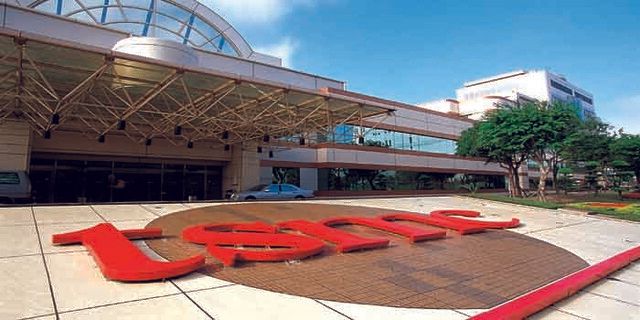In a significant move that shows a growing shift in the semiconductor manufacturing landscape, TSMC, the world's premier manufacturer of advanced semiconductor chips, is close to a significant development. This pivot is made possible through a collaboration that not only marks a milestone for TSMC but also signifies a major stride for the semiconductor industry in the United States. The collaboration comes in the form of an unprecedented grant, amounting to $6.6 billion, bestowed by the U.S. government, aimed at ramping up U.S. chip production.
This generous grant serves as the cornerstone for the establishment of three state-of-the-art fabrication plants (fondly termed "fabs") in Phoenix, Arizona. These facilities spearhead President Joe Biden's ambitious efforts to reclaim and secure America's position at the forefront of cutting-edge chip production. The inception of this initiative traces back to a pressing realization: America, once the cradle of semiconductor innovation, producing nearly 40% of the world's chip capacity, has seen this dominance wane to a mere 10%, particularly in the realm of advanced chip manufacturing. This decline not only heralds economic consequences but also exposes the nation to significant security vulnerabilities given the centrality of these chips in powering a vast array of technologies, from smartphones to satellites and beyond.
Further compounding the urgency of bolstering domestic chip production are the palpable risks posed by geopolitical tensions and natural disasters. Recent events, including the COVID-19 pandemic's disruption of global supply chains and a significant earthquake in Taiwan, where TSMC is headquartered, have laid bare the vulnerabilities of an over-reliance on overseas chip manufacturing. These challenges give emphasis to the strategic importance of advancing semiconductor fabrication within U.S. borders—an endeavor aimed at mitigating supply bottlenecks and securing the technology underpinning both civilian and military applications.
The Grant Announcement and Its Context

Photo by Bermix Studio on Unsplash
Biden Administration's Grant to TSMC
In an ambitious move to restore the United States' semiconductor manufacturing prowess, the Biden administration announced a significant grant to Taiwan Semiconductor Manufacturing Company (TSMC). With a staggering sum of $6.6 billion allocated, the grant is aimed to accelerate TSMC's expansion efforts in the U.S., particularly for the construction of three state-of-the-art semiconductor fabrication plants in Phoenix, Arizona. TSMC Phoenix underlines a broader commitment to revitalizing the U.S. semiconductor industry, which has seen a decline in its global production share over recent decades. It represents not just an investment in physical infrastructure but also a deliberate endeavor to reclaim a leading role in a technology vital to modern economies and national security.
The Significance of the Grant in the Context of the CHIPS and Science Act
The grant to TSMC is a part of a robust framework established by the CHIPS and Science Act. This landmark legislation, instituted in August 2022, earmarks almost $53 billion towards nurturing the domestic semiconductor industry. It is both a response to the recent supply chain vulnerabilities exposed by the COVID-19 pandemic and a strategic maneuver to counter the rising technological might of geopolitical rivals, notably China. The Act stipulates financial incentives for semiconductor manufacturers under the condition that they refrain from extending certain operations to nations deemed a security threat. By channeling funds into TSMC’s Arizona projects, the U.S. aims to secure a supply of cutting-edge chips on its soil, thus addressing economic, technological, and security imperatives in a single stroke.
Objectives Behind the Funding

"iPhone 7: TSMC fabricará los chips A10" by iphonedigital is licensed under CC BY-SA 2.0.
Strengthening U.S. Semiconductor Manufacturing Capabilities
Central to the U.S. government's decision to finance TSMC's expansion is the goal of revitalizing the nation's semiconductor manufacturing capabilities. From once being the cradle of semiconductor innovation and production, commanding nearly 40% of global output, the U.S. has seen its share and influence wane. With TSMC's investment in Arizona, facilitated by this grant, the U.S. signifies its intent to pivot back to a position of strength in semiconductor manufacturing. By fostering an ecosystem where the most sophisticated chips can be produced domestically, the initiative aims to ensure a steady, secure supply chain and bolster the U.S. as a nexus of technological innovation.
Enhancing National Security and Economic Stability
The significance of semiconductors transcends their economic value, deeply embedding into the fabric of national security and sovereignty. This strategic investment in TSMC is, therefore, also a bulwark against security vulnerabilities. By localizing (TSMC Arizona) the production of cutting-edge chips, the U.S. aims to mitigate risks associated with geopolitical tensions, trade disputes, and supply chain disruptions that have previously led to significant bottlenecks. The move is a calculated step towards safeguarding critical technologies that underpin everything from consumer electronics to advanced military systems, thus enhancing both national security and economic resilience.
Prioritizing Advanced Microchip Production Domestically
The grant underscores a strategic prioritization of advanced microchip production within U.S. borders. The emphasis on producing "the most advanced semiconductor chips on the planet here in the United States of America," as highlighted by U.S. Commerce Secretary Gina Raimondo, reflects an acute awareness of the pivotal role these components play in contemporary and future technological landscapes. Be it in realms of artificial intelligence, quantum computing, or next-generation wireless networks, the ambition is clear: to ensure that the U.S. is not only a consumer but also a leading creator of next-gen semiconductor technology. This vision of technological sovereignty is poised to redefine the global semiconductor industry's dynamics, placing the U.S. at the forefront of innovation and production.
The Expected Impact on the Semiconductor Industry

Image by u_8t3emw1yia from Pixabay
Jobs Creation and Investment in Arizona
TSMC's Arizona project is expected to be a boon for employment in the region. With the construction and operationalization of three cutting-edge semiconductor fabrication plants, approximately 6,000 high-wage technical jobs are anticipated to be directly created. This doesn't account for the over 20,000 indirect jobs that will likely emerge in sectors such as construction and services catering to the increased economic activity these plants bring. The TSMC investment, deemed unprecedented in Arizona's history, marks a massive step in the state's role in the global technology ecosystem.
Strengthening the U.S.'s Position in Global Semiconductor Fabrication
The strategic expansion of TSMC's operations in Phoenix, Arizona signifies a critical step towards reclaiming the U.S.’s prominence in semiconductor manufacturing. Historically, the U.S. led in this domain, but production gradually shifted overseas, leaving the country vulnerable to global supply chain disruptions. By localizing the production of cutting-edge chips used in a myriad of applications—from consumer electronics to critical national defense systems—the U.S. is poised to mitigate these vulnerabilities and lead in the innovation and production of advanced semiconductor technologies.
Potential Effects on Supply Chain Resilience
The COVID-19 pandemic exposed the fragility of global supply chains, particularly within the semiconductor industry. TSMC’s increased footprint in the U.S. is expected to enhance supply chain resilience, providing a more stable and predictable flow of critical components crucial to a wide array of sectors. By diversifying the geographical spread of its manufacturing bases, TSMC, alongside the U.S. government, aims to protect the supply of semiconductors against unforeseen global disruptions, thereby ensuring continuity and security in technological infrastructures.
Implications for U.S.-China Relations

Photo by Karolina Grabowska
How the Funding Might Influence U.S.-China Technological Competitiveness
This considerable financial injection into TSMC's U.S. expansion in Phoenix, Arizona is intrinsically linked to the broader U.S. strategy of securing a technological edge over China. Semiconductors stand as the foundation of modern technology, and by localizing production of the most advanced chips, the U.S. not only aims to reduce dependence on foreign suppliers but also seeks to fortify its position in the global technological arms race. This move could intensify the competition between the two superpowers and push towards a more bifurcated global tech landscape.
The Role of Geopolitics in Semiconductor Manufacturing Strategies
The geopolitics of semiconductor manufacturing is complex, reflecting broader tensions and strategic rivalries. The decision to bolster the U.S.'s semiconductor capacity via TSMC’s Phoenix expansion is deeply entwined with concerns over national security and the desire to limit vulnerabilities associated with reliance on Asian supply chains, particularly from regions under Beijing's influence. This strategic pivot not only aims to secure the technological supply chains but also signals a reorientation of global manufacturing alliances, which could recalibrate the geopolitical dynamics between the U.S. and China.






